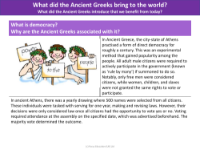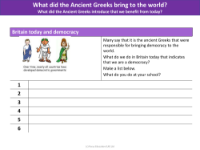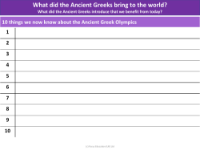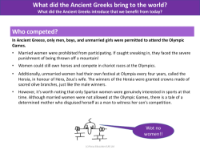Ancient Greek Olympics - Info sheet
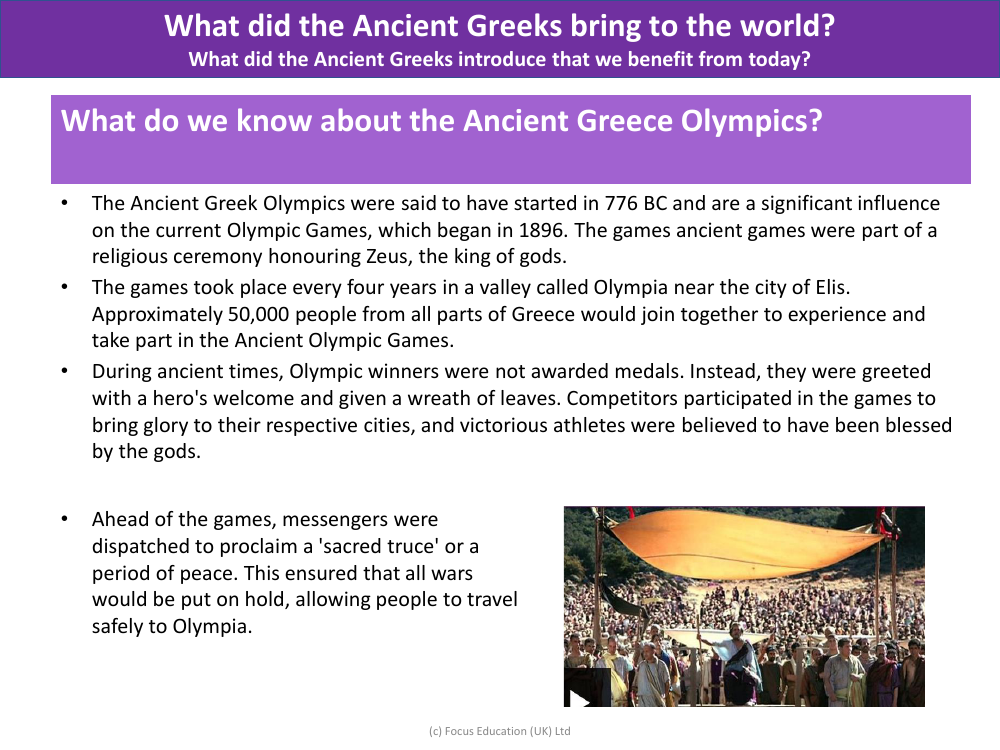
History Resource Description
The Ancient Greek Olympics were a pivotal aspect of Greek culture, initially held in 776 BC and profoundly influencing the modern Olympic Games that began in 1896. These games were not merely athletic competitions but also a religious festival in honour of Zeus, the chief deity of the Greek pantheon. Athletes from across the Greek world would convene every four years in the valley of Olympia, near the city of Elis, with an estimated 50,000 people gathering to witness and participate in the prestigious event. To facilitate safe passage for all attendees, messengers were sent out to declare a 'sacred truce' which halted all warfare during the games, ensuring peace and safety for those traveling to Olympia.
Unlike today's Olympics, where athletes compete for medals, the victors of the Ancient Greek Olympics were celebrated with a hero's welcome back in their home cities and awarded a simple yet symbolic wreath of leaves. The honour of winning was considered a divine blessing, and the athletes competed not for personal gain but to bring glory to their city-states. The legacy of the Ancient Greek Olympics is enduring, with many of the values and traditions still resonant in the contemporary games, highlighting the lasting contributions of Ancient Greece to the world's cultural heritage.


